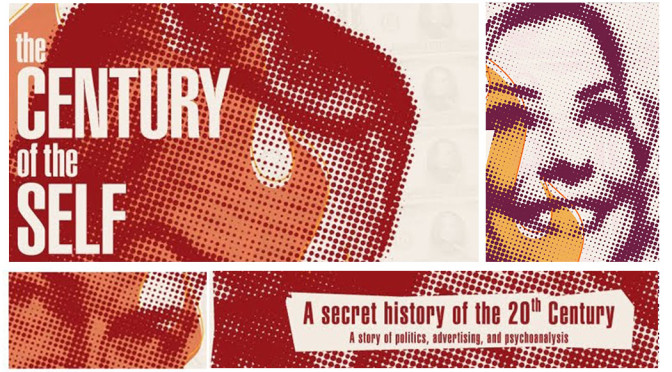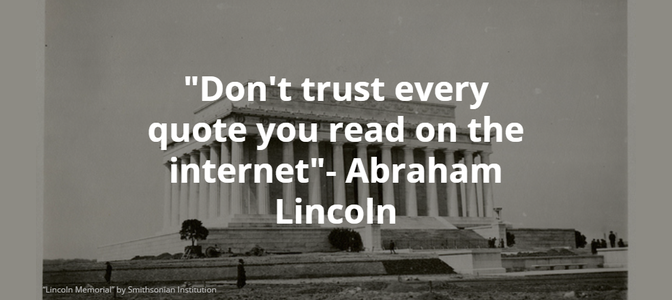Jason Zweig, a columnist over at the WSJ, published the following list of recommended books on investing. With the myriad of choices available and limited time, it may be helpful for those looking for some “vetted” reading material. Enjoy!
Gary Belsky and Thomas Gilovich, Why Smart People Make Big Money Mistakes and How to Correct Them
In clear, simple prose, Belsky and Gilovich explain some of the most common quirks that cause people to make foolish financial decisions. If you read this book, you should be able to recognize most of them in yourself and have a fighting chance of counteracting some of them. Otherwise, you will end up learning about your cognitive shortcomings the hard way: at the Wall Street campus of the School of Hard Knocks.
Peter L. Bernstein, Against the Gods: The Remarkable Story of Risk
The late polymath Peter Bernstein poured a long lifetime of erudition and insight into this intellectual history of risk, luck, probability and the problems of trying to forecast what the future holds. Combining a stupendous depth of research with some of the most elegant prose ever written about finance, Bernstein chronicles the halting human march toward a better understanding of risk—and reminds us that, after centuries of progress, we still have a long way to go.
John C. Bogle, Common Sense on Mutual Funds
The founder of the Vanguard Group and father of the index-fund industry methodically sorts fact from fiction. Following his logical arguments can benefit you even if you never invest in a mutual fund, since Bogle touches on just about every crucial aspect of investing, including taxes, trading costs, diversification, performance measurement and the power of patience.
Elroy Dimson, Paul Marsh and Mike Staunton, Triumph of the Optimists
Neither light reading nor cheap (it’s hard to find online for less than about $75), this book is the most thoughtful and objective analysis of the long-term returns on stocks, bonds, cash and inflation available anywhere, purged of the pom-pom waving and statistical biases that contaminate other books on the subject. The sober conclusion here: Stocks are likely, although not certain, to be the highest-performing asset over the long run. But if you overpay at the top of a bull market, your future returns on stocks will probably be poor.
Richard Feynman, Surely You’re Joking, Mr. Feynman! or What Do You Care What Other People Think?
These captivating oral histories of the great Nobel Prize-winning physicist ostensibly have nothing to do with investing. In my view, however, the three qualities an investor needs above all others are independence, skepticism and emotional self-control. Reading Feynman’s recollections of his career of intellectual discovery, you’ll see how hard he worked at honing his skepticism and learning to think for himself. You’ll also be inspired to try emulating him in your own way.
Benjamin Graham, The Intelligent Investor
Originally published in 1949, called by Warren Buffett “by far the best book on investing ever written,” this handbook covers far more than just how to determine how much a company’s stock is worth. Graham discusses how to allocate your capital across stocks and bonds, how to analyze mutual funds, how to take inflation into account, how to think wisely about risk and, especially, how to understand yourself as an investor. After all, as Graham wrote, “the investor’s chief problem—and even his worst enemy—is likely to be himself.” (Disclosure: I edited the 2003 revised edition and receive a royalty on its sales.) Advanced readers can move on to Benjamin Graham and David Dodd, Security Analysis, the much longer masterpiece upon which The Intelligent Investor is based.
Darrell Huff, How to Lie with Statistics
This puckish riff on how math can be manipulated is only 142 pages; most people could read it on a train ride or two, or in an afternoon at the beach. As light as the book is, however, it is nevertheless profound. In one short take after another, Huff picks apart the ways in which marketers use statistics, charts, graphics and other ways of presenting numbers to baffle and trick the public. The chapter “How to Talk Back to a Statistic” is a brilliant step-by-step guide to figuring out how someone is trying to deceive you with data.
Daniel Kahneman, Thinking, Fast and Slow
Successful investing isn’t about outsmarting the next guy, but rather about minimizing your own stupidity. Psychologist Daniel Kahneman, who shared the Nobel Prize in Economics in 2oo2, probably understands how the human mind works better than anyone else alive. This book can make you think more deeply about how you think than you ever thought possible. As Kahneman would be the first to say, that can’t inoculate you completely against your own flaws. But it can’t hurt, and it might well help. (Disclosure: I helped Kahneman research, write and edit the book, although I don’t earn any royalties from it.)
Charles P. Kindleberger, Manias, Panics, and Crashes
In this classic, first published in 1978, the late financial economist Charles Kindleberger looks back at the South Sea Bubble, Ponzi schemes, banking crises and other mass disturbances of purportedly efficient markets. He explores the common features of market disruptions as they build and burst. If you remember nothing from the book other than Kindleberger’s quip, “There is nothing so disturbing to one’s well-being and judgment as to see a friend get rich,” you are ahead of the game.
Roger Lowenstein, Buffett: The Making of an American Capitalist
This book remains the most comprehensive and illuminating study of Warren Buffett’s investing and analytical methods, covering his career in remarkable detail up until the mid-1990s. If you read it in conjunction with Alice Schroeder’s The Snowball, you will have a fuller grasp on what makes the world’s greatest investor tick.
Burton G. Malkiel, A Random Walk Down Wall Street
In this encyclopedic and lively book, Malkiel, a finance professor at Princeton University, bases his judgments on rigorous and objective analysis of long-term data. The first edition, published in 1973, is widely credited with helping foster the adoption of index funds. The latest edition casts a skeptical eye on technical analysis, “smart beta” and other market fashions.
Bertrand Russell, [Sceptical Essays or The Scientific Outlook](Sceptical Essays or The Scientific Outlook)
Russell is Buffett’s favorite philosopher, and these short essay collections show why. Russell wrote beautifully and thought with crystalline clarity. Immersing yourself in his ideas will sharpen your own skepticism. My favorite passage: “When a man tells you that he knows the exact truth about anything, you are safe in inferring that he is an inexact man…. It is an odd fact that subjective certainty is inversely proportional to objective certainty. The less reason a man has to suppose himself in the right, the more vehemently he asserts that there is no doubt whatever that he is exactly right.” Think about that the next time a financial adviser begins a sentence with the words “Studies have proven that….”
Alice Schroeder, The Snowball: Warren Buffett and the Business of Life
With unprecedented access to Buffett, Schroeder crafted a sensitive, personal and insightful profile, focusing even more on him as a person than as an investor—and detailing the remarkable sacrifices he made along the way. If you read it alongside Lowenstein’s Buffett, you will have an even deeper understanding of the master.
Fred Schwed, Where Are the Customers’ Yachts?
First published in 1940, this is the funniest book ever written about investing—and one of the wisest. Schwed, a veteran of Wall Street who survived the Crash of 1929, knew exactly how the markets worked back then. Nothing has changed. Turning to any page at random, you will find gleefully sarcastic observations that ring at least as true today as they did three-quarters of a century ago. My favorite: “At the end of the day [fund managers] take all the money and throw it up in the air. Everything that sticks to the ceiling belongs to the clients.”
“Adam Smith,” The Money Game
In the late 1960s, the stock market was dominated by fast-talking, fast-trading young whizzes. The former money manager George J.W. Goodman, who wrote under the pen name “Adam Smith,” christened them “gunslingers.” In this marvelously entertaining book, Goodman skewers the pretensions, guesswork and sheer hogwash of professional money management. Reading his mockery can help sharpen your own skepticism toward the next great new investing idea—which almost certainly will turn out to be neither great nor new.
Have you read any of these books yourself? Feel free to share your thoughts & feedback!

![[WSJ] Best Books for Investors: A Short Shelf](http://www.stevenwcheung.com/wp-content/uploads/2015/02/books-1408766_75463072-672x372.jpg)

